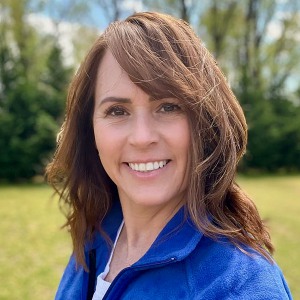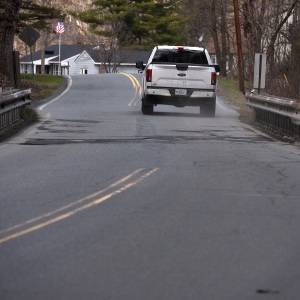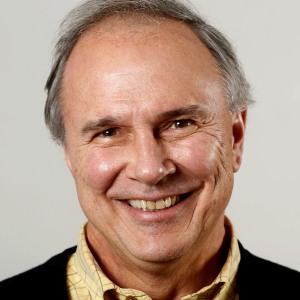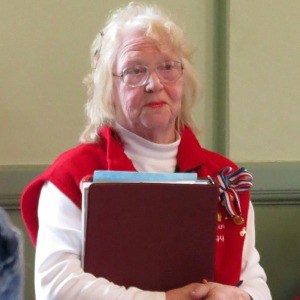Jim Kenyon: A wish list for 2023
| Published: 12-31-2022 3:00 PM |
With 2022 wrapping up, I figure it’s time to share my wish list for the Upper Valley in 2023. Here goes:
Enough with the Norwich Farm Foundation’s $1.25 million fundraising campaign to “Bring the Cows Back.”
The Upper Valley already has Billings Farm and Museum in Woodstock. It doesn’t need another glorified petting zoo.
Instead of Norwich residents devoting their energy and money to create a Disney-style dairy farm (there are only so many field trips that fourth graders can take to learn about cheese-making), here’s an idea:
Norwich could focus on building a transitional or supportive housing complex in town.
The Upper Valley Haven and Listen have shouldered the burden of caring for people at risk of homelessness for far too long.
I often hear from Hartford and Lebanon residents who want Norwich — and Hanover — to start doing its fair share. Writing checks to the Haven and Listen doesn’t cut it.
A hay field on Route 5, across from Fogg’s Lumber and Hardware, is a potential location worth investigating. The 30 acres or so of open land has been on the market for several years.
Article continues after...
Yesterday's Most Read Articles
 Starbucks store planned for Route 120 at Centerra
Starbucks store planned for Route 120 at Centerra
 Canaan Elementary School has new principal
Canaan Elementary School has new principal
 City plans to widen and replace bridge on Trues Brook Road
City plans to widen and replace bridge on Trues Brook Road
 Enterprise: Upper Valley pet sitters discuss business growth, needs
Enterprise: Upper Valley pet sitters discuss business growth, needs
 2024 Upper Valley high school baseball guide
2024 Upper Valley high school baseball guide
For seed money, Norwich could tap into the $1 million the federal government is sending the town’s way through the American Rescue Plan Act.
■
Dartmouth Health comes clean on how much its re-branding initiative is costing.
As a nonprofit health care empire, Dartmouth Health enjoys all sorts of tax exemptions. The least it could do is become more transparent about how many dollars are going for new signs, logos and advertisements at Manchester-Boston Regional Airport.
Alan Sager, a professor and director of the health care reform program at Boston University, put in best when we talked just as Dartmouth Health was launching its rebranding campaign in April.
“If they don’t tell us how much they’re spending on rebranding,” Sager said, “it means they’re ashamed.”
■
The Lebanon School Board finds the political will to stop allowing an armed city cop to patrol school hallways.
The school district and city have split the cost of a so-called school resource officer since the early 2000s.
In March, Lebanon voters passed an article, 811-650, to eliminate the position.
A group called Lebanon High School Students of Color Collective, which meets regularly to talk about racial issues, has asked that the cop be removed. In a 2021 letter to the School Board, the students wrote that they oppose the “concept of police playing an active daily role in our schools. Police officers are not trained to deal with students in trauma.”
There are better ways for the school district to spend its annual share of roughly $60,000 for the position. Expanding much-needed mental health and social services for students immediately comes to mind.
■
James Parker is allowed to rejoin society.
In 2002, the Chelsea teenager was sent to the New Hampshire State Prison for his role in the murders of Dartmouth professors Half and Susanne Zantop at their Etna home in January 2001.
After pleading guilty to second-degree murder, Parker received a minimum sentence of 25 years. His Chelsea schoolmate, Robert Tulloch, pleaded guilty to first-degree murder and received a life sentence without the possibility of parole. Parker was 16; Tulloch was 17.
While in prison, Parker, now 38, has earned a master’s degree and helped other inmates through his music, art and theater projects.
Under New Hampshire law, an offender who has served two-thirds of his minimum sentence can return to court to seek early release.
Parker, through attorney Cathy Green, filed the legal paperwork to end his incarceration in 2019. In a court filing, Green wrote that Robert Kinscherff, a forensic psychologist, had evaluated Parker for his risk of future criminal behavior and determined “Jim scores at the very low end for risk of violent behavior and re-offending.”
Parker withdrew his request, after the Zantops’ family and friends from the Dartmouth community voiced objections.
I found the reaction, particularly among Dartmouth faculty members, disappointing, but not surprising. It’s easy to advocate for criminal justice reform in the abstract. Not so much when a case hits close to home.
Parker deserved a lengthy prison sentence — and he got it.
But I’m not sure what purpose is served by keeping him locked up. Unless it’s meant to reinforce the belief that the U.S. criminal justice system should remain primarily about retribution.
■
Windsor Selectboard reverses course about planting “Pride” tree.
In October, three-fifths of the board — Tera Howard, Jeffrey Johnson and Paul Woodman — teamed up to keep Windsor’s LGBTQ+ group from planting a tulip tree in a corner of the town common.
“I don’t think it’s fair for one group to cram their ideology down everyone’s throat, and I feel like that’s what is being done here,” Howard said before the 3-2 vote.
Howard and her two colleagues missed the point. Planting a tree in the common, which is across from the Windsor Library, has nothing to do with ideology.
“These simple shows of support go a long way in signaling to the outside world (that) Windsor is a nice place to live,” resident Colin Moon wrote to the board.
There’s still time for the Selectboard to change its mind — and show it’s open-minded. The spring planting season doesn’t start for a few months.
Jim Kenyon can be reached at jkenyon@ vnews.com.

 Kenyon: No respite from conflict in Upper Valley
Kenyon: No respite from conflict in Upper Valley A Life: Peggy Thorp ‘was critical to getting it all done’
A Life: Peggy Thorp ‘was critical to getting it all done’
